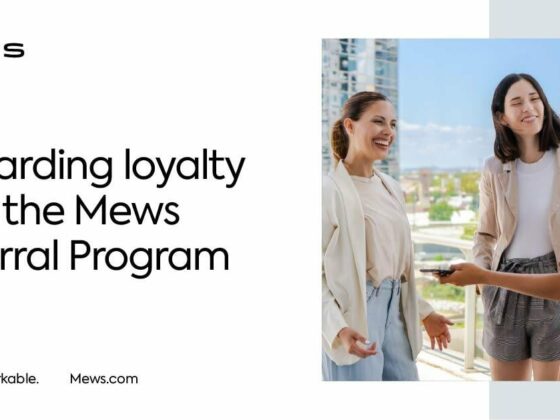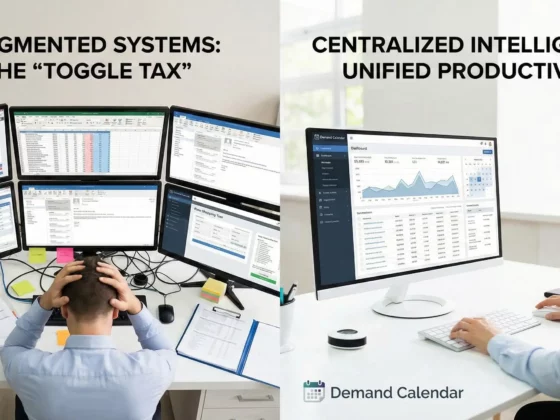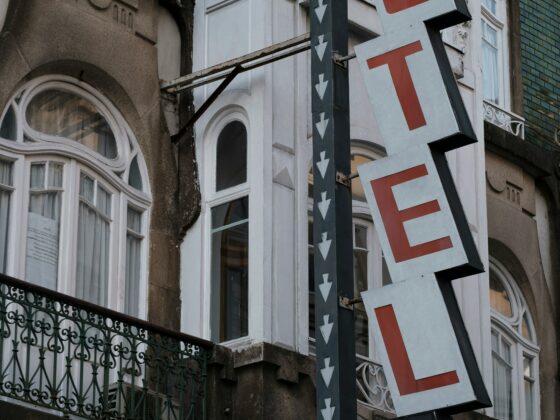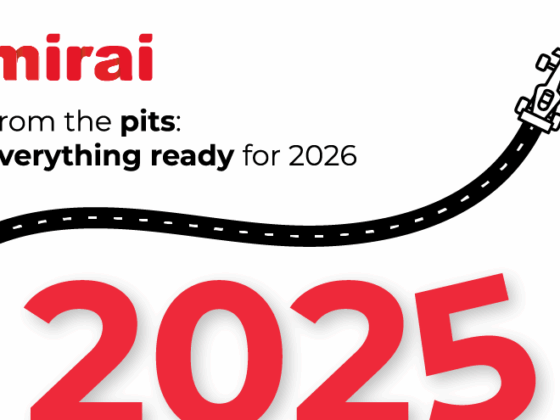Thoughts on overtourism, B2B Influencers and AI and Concert Travel (Swift, Adele, Coldplay or Beyoncé). Plus comparing a hotel brand to a CPG brand, mostly differences.
Hello,
I found a great way to get additional view on the hotel industry around the world, using the regional 10minutes newsletters one can get a great overview of what is happening in the hotel industry of other regions. Spain, Italy, Germany – the industry is similar but not the same. The hack is to use Google translate to read it in English.
Best, Martin
PS: Give me a hand, share this newsletter with 2 people and if you have suggestions do send them – I don’t promise I’ll implement them though 🙂
Recent media mentions:
Klairhaus is a boutique brand of home office accessories crafted by artisans in Europe with a generational heritage of quality both in materials and manufacturing. Using only natural materials, discover accessories designed to make your work life better.
Support the newsletter, treat yourself to great office gadgets.
The overtourism dillema
I’m not a fan of the word overtourism. It makes tourism seem like a bad thing. The impacts of travel are much deeper than economic and environmental. There’s a huge benefit in building human connection between regions, races and cultures. It is how we learn to appreciate “them”. It is hard to dislike cultures one understands, so easy to hate those one only read about. So no, I don’t think we have an overtourism problem, I think we have a distribution problem, a concentrated travel problem. Travel focused on short seasons in the same locations. The first thing we can do is work out how to distribute more evenly across the year, and then we need to see how we can spread to more locations. Tech will help here, just like Waze can redirect cars based on traffic jams, we should get tech to redirect our trips. Not just because it is cheaper, but imagine staying at the best luxury hotel of the region for the same price as a budget hotel in high season. In a study done in Europe, 49% of respondents said they would consider changing their travel times, 39% said they would reconsider destinations, to avoid peak seasons.
CSA RESEARCH [FRENCH] BOOKING PREDICTS ACCENTURE RESEARCH
The Influencers of B2B
LinkedIn created an event for the influencers in B2B marketing. Of course they did, as the main social media platform for B2B, they have a vested interested in building an entertainment platform for work. Will work-influencers become a thing? I’m not totally sure. Sounds ironic since you’re reading this newsletter. But as far as I’m concerned, unless one is self-employed, the main influencer is the CEO or our direct report. The other point is that “doom-scrolling” is real. LinkedIn added video shorts recently. They’re going the social media route of trying to consume as much or user’s time as possible. And at one point employers are going to look at logs and notice how much time is being spent on LinkedIn by the employees. And then the blocking begins.
B2B INFLUENCER MARKETING
About me: I'm a fractional CMO for large travel technology companies helping turn them into industry leaders. I'm also the co-founder of 10minutes.news a hotel news media that is unsensational, factual and keeps hoteliers updated on the industry. Advertising’s AI revolution
Amazon – which is the third largest ad platform after Meta – launched a new generative AI ad builder at their recent conference. Is the system as good as they advertise, probably not, but is this going to revolutionise the creative work for advertising, absolutely. Soon you’ll be able to arrange a photoshoot for your hotel, upload it with some logo assets, descriptions, location data and it will put together a small video to advertise your hotel on social and other channels. The speed at which Amazon is shipping is stunning. Now we just need this for the hotel industry.
MAKE A VIDEO AD OF THIS IMAGE
Concert Travel, new or just a media thing?
Between Taylor Swift, Coldplay, Adele, Beyoncé, the stories of concerts driving hotel revenue are multiplying. Last week an article in Germany highlighted how Adele and Coldplay increased Munich’s overnights to highest since 1912 (probably when they started counting as I’m highly doubtful they had more hotel stays back in 1912). This summer Hyatt CEO announced that Taylor Swift drove more hotel revenue than the Paris Olympics. So is Concert Travel a new thing? I never recall concerts driving up ADR and occupancy to such levels. Or is it just a media thing because writing about celebrities and money drives lots of clicks?
COLDPLAY & ADELE [GERMAN]
The success of P&G
Procter and Gamble is one of the most known consumer goods companies. How they have built, grown, bought and pruned their list of brands to drive the best returns is quite an interesting study. In the hotel industry we don’t prune brands (more on that in this week’s column) but there are still valuable lessons we can learn from from adjacent industries. In fact, I think we learn more from looking at how someone outside our industry is doing something than trying to copy what the others are doing within our echo-chamber.
10 LESSONS FROM P&G
Podcast: I was invited on the Hospitality Daily Podcast and spoke about technology in hospitality, some thoughts on what wont change in hospitality, and why I co-founded 10minutes.news. Best, MartinTHOUGHTS:
Hotels Brands vs CPG Brands
There’s a long debate on what is a hotel brand really. And are there too many of them. Sometimes they are compared to Consumer Packaged Goods (CPG) brands such as those from Procter and Gamble (P&G).
When it comes to creating and growing brands P&G knows what they’re doing. One doesn’t need to agree with their structured approach to understand that they have a clear view of what they’re doing.
So why doesn’t the hotel industry build brands like they do?
The simple answer is purpose. The purpose of a CPG brand is to stand out from the competition, to command a profitable price, and to build repeat purchase. The brand is the vehicle to achieve those business goals.
The purpose of a hotel brand is different. Branded hotels are an asset class. As a managed real estate investment hotels don’t even need to turn out much profit, the long term real estate value will drive a return. So why the brands? Because there can only be so many Holiday Inn’s in Chelsea.
CPG brands need to be consumer brands, they need to drive a profit. They need to drive sales, they will be benchmarked on the profit generated by the product and they either take market share from another product brand or they create a new market. Hotel brands might take some share from others, but mostly they’re tapping into the growing travel market of the destination.
The majority of the people who buy a certain detergent do so because it is either cheaper or because they believe that brand is better than the others. Hotels get booked because of their location or price and the rewards points (and the economics of the latter are opaque).
The way hotels are branded is also quite different to the way CPG are promoted. A typical hotel brand is opened after a real-estate investor decides to build a hotel in a location. I.e. the brand is selected afterwards. Nobody buys a lot of detergent and then wonders what brand to put on it.
A CPG brand decides to launch in a city or country, is a choice from the brand owners and involves, distribution, partners, support, advertising campaigns and more. A hotel brand is selected by the real-estate owner to reduce real-estate risk.
So the purpose of the brand is what drives it. Consumer goods are brands built for consumers. Hotel brands are built for investors.
But in the end, profitable growth over time comes from having happy customers (guests in our case), because if the brands mean nothing to them except cash-back, costs will rise or guests will move. We’re not there yet, and most guests aren’t aware of this. Or are they?










